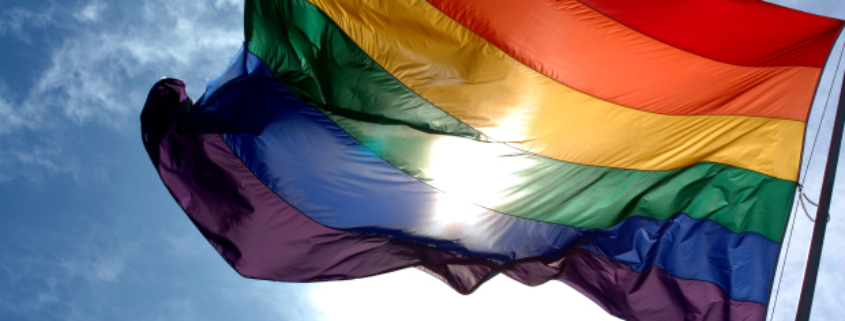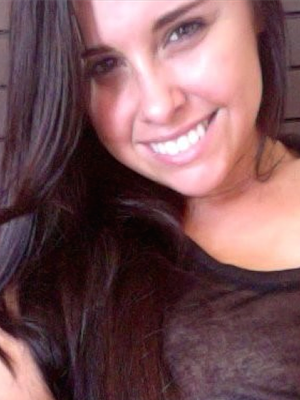On Writing Outside Our Lived Experiences and Acting As Trans Allies
I met Wryly last June, when they were known as Wendy. This would change within a couple months. One December night, we walked along Venice Beach during Antioch University’s MFA winter residency. As long as I’d known them, Wryly had gone by they/them pronouns, but it wasn’t until December, perhaps ushered by the name change, that I became deliberate in using them.
That night I told Wryly that there was a lot I didn’t understand about being trans, specifically its lexicon. I didn’t know sex and gender weren’t synonymous. I was, simply put, ignorant, but still receptive. I expressed fear that I didn’t have a voice in the conversation; this, as a cisgender woman, was not my conversation. Wryly put their arm around my shoulders. “Believe me, we need more people like you.”
During this June’s residency, Wryly and I attended a seminar, “Writing & Privilege” by Kyle Sawyer, a queer activist working for racial and social justice, and founder of the nonprofit organization, Building Allies Together. His seminar posed a question I’ve long wrestled with: how do I write a fictional character who identifies differently from me? My protagonists are all white, cisgender women, not because I wish to limit what readers are introduced to—in fact, I want the opposite: an expanded, diverse, even complicated scope—but because I don’t want to get it wrong. I don’t want to appropriate. I don’t want to offend.
During the seminar, a male student asked about writing from the female perspective, to which Sawyer offered this advice: do the research, go to events, talk to people. It is easy to rely on stereotypes when writing characters outside the author’s lived experience, but “it’s important to challenge the common tropes of many groups, to remember that certain language is heavy with symbolism and expectation,” Sawyer said.
In December, I taught a winter break writing camp for teenagers in Santa Monica. One day, a student—we’ll call her Jenny—came into class with pages and pages of character development. She’d explored her fictional characters deeply, knew what frustrated them, what they envied, what gestures they made when they were sad. And in the middle of these lush descriptions Jenny included something along the lines of “Carol was born with male genitalia, but identifies as a woman. She is seventeen. Her mom no longer speaks to her.” The description went on from there. It was as if, yes, Carol’s trans identity was significant—significant enough for her mother to reject her personhood—but Carol was also defined by always carrying no less than three novels in her backpack and how she couldn’t help but buy holiday presents for friends, even though she made little money working at an ice cream parlor. Which is to say, Carol, like all transgender people, was a whole person.
“Being trans is not a character trait,” Sawyer told me when I reached out to him for an interview. “It is important that we, as writers, remember that a character’s demographic cannot and does not define that character.”
Sawyer ended the seminar on this note: it is not up to the oppressed to defend themselves; rather, it is the privileged class that must stand beside the oppressed. I asked Sawyer about the responsibilities of allies. What can we do to help?
“Listen to what those of the marginalized classes are saying,” Sawyer said. “The responsibility of an ally, I think, is to speak out against oppression, to stand with those who are directly affected by the systems of oppression, and to do whatever possible to build a stage to raise the voices of those often silenced. The responsibility [of the ally] is not to speak for, but to stand with. It is a very important distinction.”
In a video titled “How to be a Trans Ally,” Emotions the Poet, spoken word artist and fellow Antioch University MFA student, says, “being a trans ally is a verb.” Emotions offers these suggestions: employ, house, and love a trans person. Affirm trans people as whole humans—let them know they are more than just their bodies—and respect their pronouns. (At Creating Change 2014, Laverne Cox, transgender actress and activist said, “When a trans woman is called a man, that is an act of violence.”)
Midway through Sawyer’s seminar, Wryly reached for my hand. I knew why. A week before, a mutual friend said he refused to refer to a trans person by his or her or their preferred pronouns. I’d first advocated on behalf of the LGBTQ community twelve years ago in my ninth grade history class. To me, being an ally is common sense. Isn’t it?
My argument then, and my argument today, is this: one single person will never be able to live every possible experience. Because we cannot continue to believe the world should exist without diversity—that’s the mentality that recently shot up a historically black church and flew planes into the World Trade Center—we must act empathetically. To deny someone their personhood or inalienable rights, to protest against a community in any capacity—whether it’s in a Facebook post, a rally, or simple defiance against pronouns—is violence. It’s bigotry. It’s ignorance.
In 2014, fifty-five percent of LGBTQ hate crime homicide victims were transgender women, according to the National Coalition of Anti-Violence Programs. This same report found that fifty percent of transgender homicide victims were women of color. Thirty-five percent of all victims were gay or bisexual men.
In 2011, the National Center for Transgender Equality and the National LGBTQ Task Force conducted the National Transgender Discrimination Survey, the largest study of its kind, with 6,400 participants. The survey found that the sample was discriminated against in the workplace and was “nearly four times more likely to have a household income of less than $10,000/year compared to the general population,” and forty-one percent of respondents reported attempted suicide. Twenty-nine percent reported police harassment.
It should be noted that many statistics for the trans community remain opaque, including one gaping oversight: we haven’t any idea how many people identify as transgender or gender non-conforming. This is true for many reasons, not least of which is the fluidity of gender and the restrictions of the traditional gender binary. Facebook, for instance, offers more than fifty gender options, whereas the United States Census Bureau inquires only about a person’s biological sex.
We stand in the wake of the Supreme Court’s landmark decision on marriage equality, yet marginalization and discrimination against the LGBTQ community persist. (In fact, after the SCOTUS decision, Texas Gov. Greg Abbott promised to take direct action to protect religious liberties by allowing state workers who believe marriage is the union of one man and one woman to refuse same-sex marriage licenses.)
Saturday night, I attended “Queer Voices, Queer Visions,” a Lambda Literary Emerging Writers Retreat reading, featuring what that organization considers the nation’s most promising LGBTQ writers. Yes, some writers wrote directly about being gay or lesbian or trans. But others wrote about the earthquake in Haiti or a brother’s colon cancer diagnosis. It was a reminder that our similarities are greater than our differences.
Consider your own otherness, whatever it is that marginalizes you. Where do you feel judged or discriminated against? Each of us has at least one aspect of our character that connects us to an oppressed class, not amongst the privileged. When—not if—you can, make another person feel comfortable and accepted because of (not in spite of) their otherness—wouldn’t you want people to do that for you?
In the case of trans people, it may be as simple as referring to someone by their preferred name and pronouns, or writing stories about a whole character who just so happens to be trans. In the case of all people, it’s as simple as understanding we are all whole, that what marginalizes us is but one aspect of a larger identity. Remember, an effort to make another’s life easier does not make yours any harder.
Lyndsay Hall lives in Los Angeles where she teaches writing to children and teens. She is pursuing an MFA in Creative Writing at Antioch University and she serves as an editor for Lunch Ticket, Zoetic Press, and Prague Revue. Her essays have appeared in xoJane, Rhizomatic Ideas, and elsewhere.






